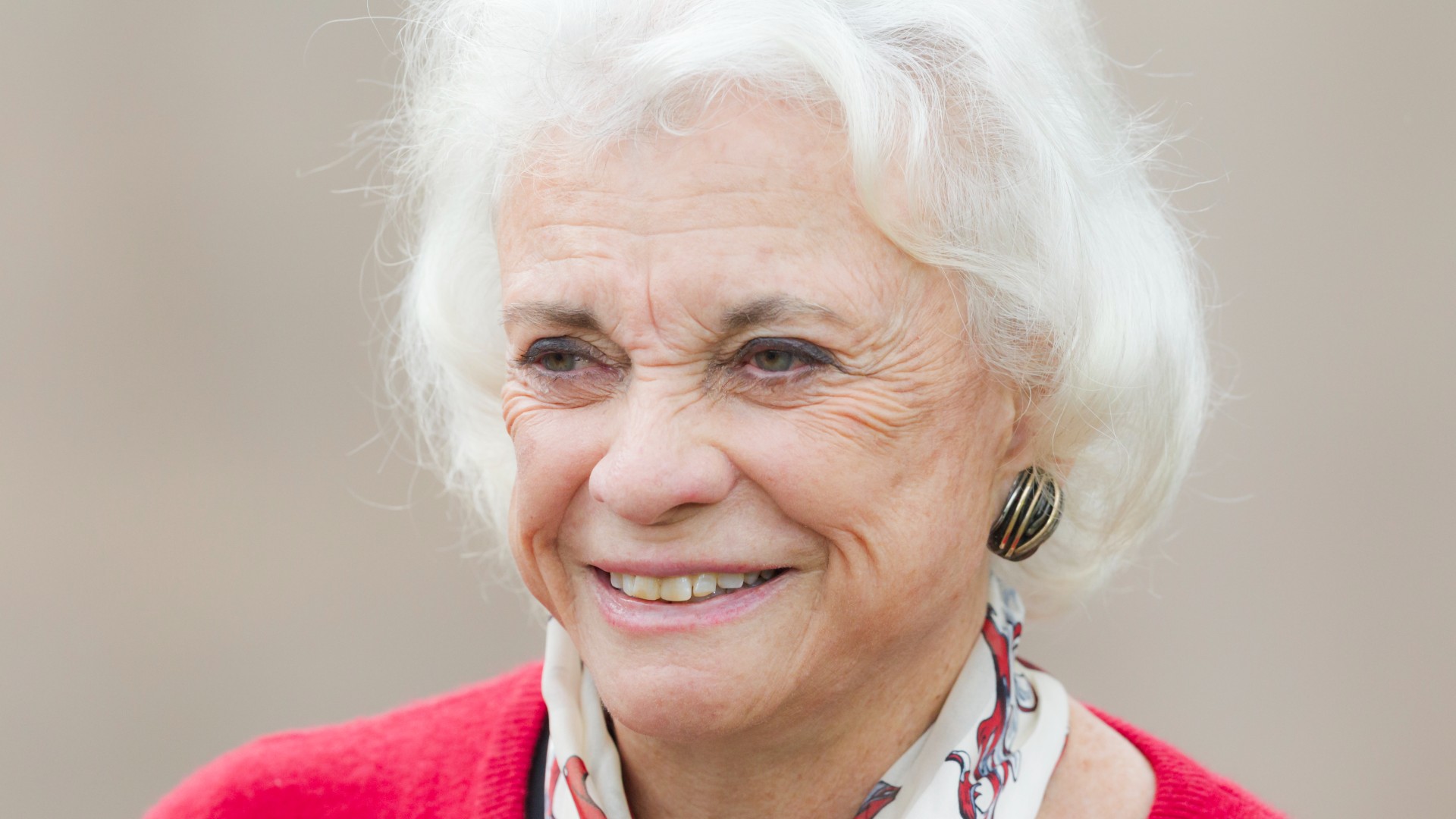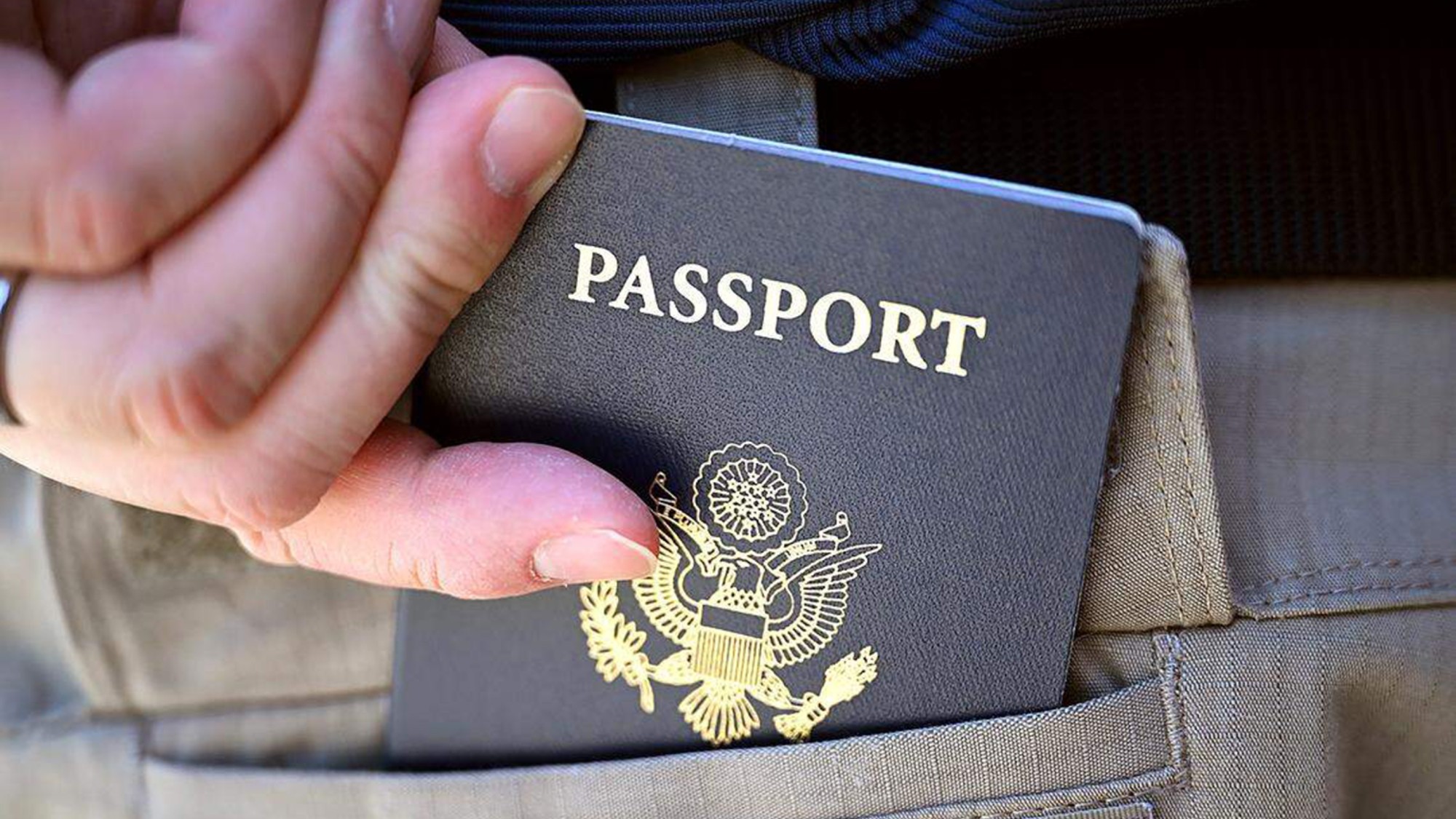Remembering former US Justice Sandra Day O'Connor, the first woman on the Supreme Court
O'Connor played a pivotal role on the bench and was regarded as the one of the powerful women of her era


A free daily email with the biggest news stories of the day – and the best features from TheWeek.com
You are now subscribed
Your newsletter sign-up was successful
Sandra Day O'Connor, the first woman U.S. Supreme Court justice, described by The New York Times as "a rancher's daughter who wielded great power over American law from her seat at the center of the court's ideological spectrum," died on Friday morning in Phoenix, Arizona. The Supreme Court said she died of complications related to advanced dementia and a respiratory illness. She was 93.
Justice O'Connor served for nearly a quarter-century, from being sworn in by former President Ronald Reagan on Sept. 25, 1981, until she retired on Jan. 31, 2006, to care for her husband John, who had Alzheimer's. Her appointment broke a two-century streak of no one but men in the high court, cementing her place in history. Her "independence" on an often "ideologically divided" court made her "the pivotal vote in numerous closely contested cases," The Washington Post noted, "and one of the most powerful women of her era."
From the ranch to the nation's highest court
O'Connor was born in Arizona and spent her formative years "riding horses and roping steers" on the Lazy B, "a 250-square-mile cattle ranch owned by her parents on the Arizona-New Mexico border," NPR reported. She left for school in El Paso at age 10, and by 16, she was enrolled at Stanford University, "eventually graduating from law school third in her class," the outlet added. Upon graduating, she was only offered positions as a legal secretary. Eventually, she became "a figure to be reckoned with in Arizona's political life," starting with being elected to the state Senate. O'Connor advanced up the Republican ranks quickly, becoming the majority leader before being appointed a state trial judge and a state appellate court judge.
The Week
Escape your echo chamber. Get the facts behind the news, plus analysis from multiple perspectives.

Sign up for The Week's Free Newsletters
From our morning news briefing to a weekly Good News Newsletter, get the best of The Week delivered directly to your inbox.
From our morning news briefing to a weekly Good News Newsletter, get the best of The Week delivered directly to your inbox.
O'Connor's appointment to the Supreme Court in 1981 fulfilled Reagan's campaign promise to name the first female justice. At an event marking the 30th anniversary of the occasion, the retired justice recalled being "very nervous” upon learning that she was chosen by the president, per the Times. “It's all right to be the first to do something, but I didn't want to be the last woman on the Supreme Court," she said. "If I took the job and did a lousy job, it would take a long time to get another one."
Throughout her time on the bench, she voted on "some of the most contentious issues the court has faced," Politico noted, "including affirmative action and abortion." One of her more contentious votes was the 5-4 vote that led to George W. Bush's 2000 election win.
Considered a swing vote for many critical issues, O'Connor was referred to as the "most powerful woman in America." She rejected being labeled a swing voter and doubted that any justice "would swing back and forth and just try to make decisions not based on legal principles but on where you thought the direction should go," she said during a 2013 interview with NPR.
A 'fiercely independent defender of the rule of law'
O'Connor left an indelible mark as the first woman justice in the Supreme Court. Post-retirement, she was awarded the Presidential Medal of Freedom in 2009 for her role in changing the face of the American judiciary, "paving the way for women to join what had been a men's only club," Politico reported. After she joined the nation's highest court, justices Ruth Bader Ginsburg, Sonia Sotomayor, and Elena Kagan followed. Amy Coney Barrett and Ketanji Brown Jackson joined the club most recently.
A free daily email with the biggest news stories of the day – and the best features from TheWeek.com
If only one person was entrusted to make all the decisions for the Supreme Court, Justice Kagan said in a 2017 tribute per the Post, you would want it to be Justice O'Connor. "If it were Justice O'Connor, it would all turn out all right," she said. She cast her pivotal votes "in a way that demonstrated extraordinary wisdom," Kagan said. Time and again, O'Connor understood something about the people in this nation, "what they would and would not stand for, about what their best values were," Kagan added. "And really, we are such a better nation because of that."
Chief Justice John Roberts remembered O'Connor as a "daughter of the American Southwest" who blazed a "historic trail as our Nation's first female Justice" in a statement issued by the court. "She met that challenge with undaunted determination, indisputable ability, and engaging candor." He said he and his fellow justices "mourn the loss of a beloved colleague, a fiercely independent defender of the rule of law, and an eloquent advocate for civics education."
Theara Coleman has worked as a staff writer at The Week since September 2022. She frequently writes about technology, education, literature and general news. She was previously a contributing writer and assistant editor at Honeysuckle Magazine, where she covered racial politics and cannabis industry news.
-
 Film reviews: ‘Wuthering Heights,’ ‘Good Luck, Have Fun, Don’t Die,’ and ‘Sirat’
Film reviews: ‘Wuthering Heights,’ ‘Good Luck, Have Fun, Don’t Die,’ and ‘Sirat’Feature An inconvenient love torments a would-be couple, a gonzo time traveler seeks to save humanity from AI, and a father’s desperate search goes deeply sideways
-
 Political cartoons for February 16
Political cartoons for February 16Cartoons Monday’s political cartoons include President's Day, a valentine from the Epstein files, and more
-
 Regent Hong Kong: a tranquil haven with a prime waterfront spot
Regent Hong Kong: a tranquil haven with a prime waterfront spotThe Week Recommends The trendy hotel recently underwent an extensive two-year revamp
-
 Supreme Court upholds California gerrymander
Supreme Court upholds California gerrymanderSpeed Read The emergency docket order had no dissents from the court
-
 How ‘Manchesterism’ could change the UK
How ‘Manchesterism’ could change the UKThe Explainer The idea involves shifting a centralized government to more local powers
-
 ‘Dark woke’: what it means and how it might help Democrats
‘Dark woke’: what it means and how it might help DemocratsThe Explainer Some Democrats are embracing crasser rhetoric, respectability be damned
-
 San Francisco tackles affordability problems with free child care
San Francisco tackles affordability problems with free child careThe Explainer The free child care will be offered to thousands of families in the city
-
 How robust is the rule of law in the US?
How robust is the rule of law in the US?TODAY’S BIG QUESTION John Roberts says the Constitution is ‘unshaken,’ but tensions loom at the Supreme Court
-
 The Mint’s 250th anniversary coins face a whitewashing controversy
The Mint’s 250th anniversary coins face a whitewashing controversyThe Explainer The designs omitted several notable moments for civil rights and women’s rights
-
 US citizens are carrying passports amid ICE fears
US citizens are carrying passports amid ICE fearsThe Explainer ‘You do what you have to do to avoid problems,’ one person told The Guardian
-
 Inside Minnesota’s extensive fraud schemes
Inside Minnesota’s extensive fraud schemesThe Explainer The fraud allegedly goes back to the Covid-19 pandemic
